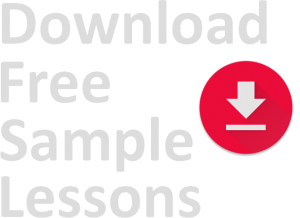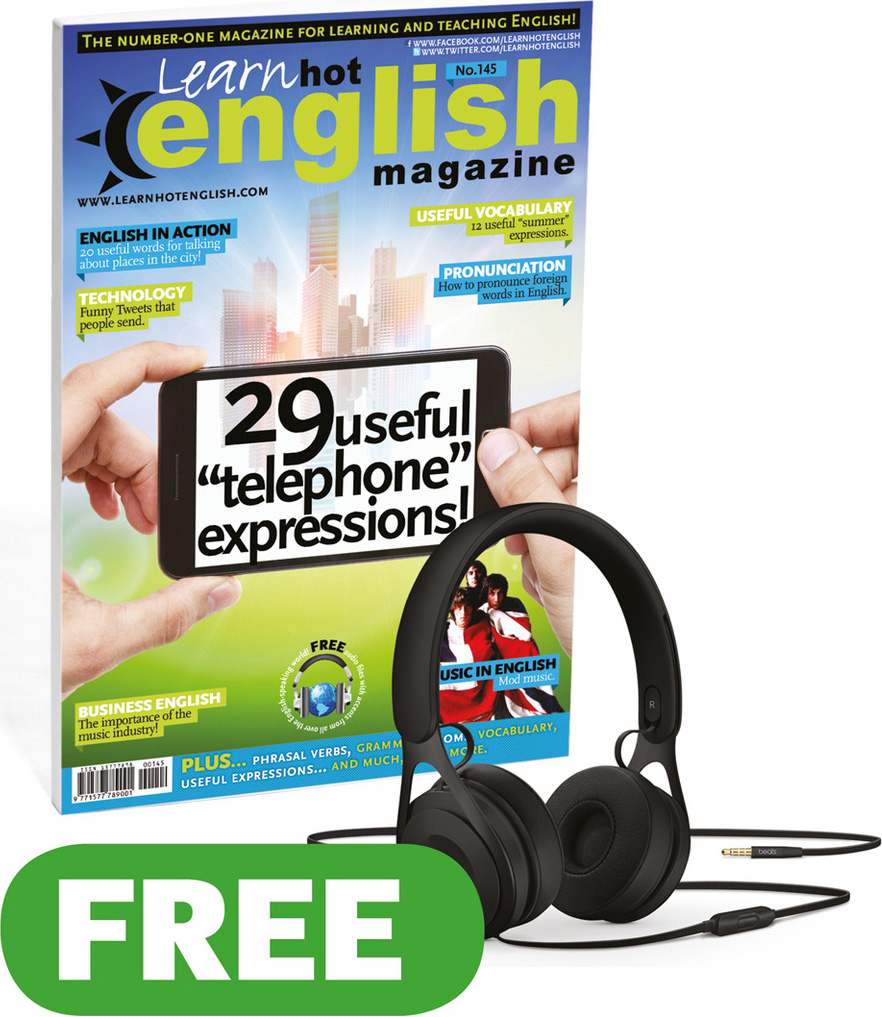How to talk about your job in English!
Where do you work?
What do you do there?
How would you describe your job?
We often have to talk about our jobs. But can you do it in English?
In this video lesson, you’ll learn some useful words for talking about your job in English! And then, you can watch a video conversation with these words so you can learn them more easily! Ready? OK, let’s go!
Level: Intermediate (B1) to Upper Intermediate (B2)
Vocabulary
Please scroll down for some useful words that appear in the video, the video script and questions/answers!
Vocabulary
Here are some useful words that appear in the video.
To get a job
If you “get a job”, you start working in a company, office, department, etc.: “I got a job as a sales manager last week.”
To work as…
If you “work as” a waiter (for example), you are a waiter in a restaurant, etc.: “I worked as a teacher when I was younger.”
To start off
If you “start off” well (for example), your first day or week is very good at the beginning: “I started off very well in my new job.”
The boss
Your “boss” is the person who manages you at work and who tells you what to do: “My boss is very nice to me.”
A parking space
A “parking space” is an area that is big enough for one car in a car park or in the street: “Someone has parked in my parking space!”
To spill
If you “spill” a drink, the drink accidentally falls out of the cup or glass you’re holding: “I spilled some coffee on the sofa.”
To yell
If someone “yells” (or “shouts” or “screams”) at you, they speak loudly, often because they’re angry: “My boss yelled at me because I made a mistake.”
Cutlery
“Cutlery” refers to the knives, forks and spoons you use to eat.
It’s insane
We use this expression to say that something is stupid, silly, crazy, ridiculous…
It’s over the top
We use this expression when we think that something is too extreme, too much, exaggerated, excessive…
To call it a day
If you “call it a day”, you decide to stop doing an activity, or stop working: “We decided to call it a day because it was getting dark and we couldn’t see properly.”
To quit
If you “quit” a job, you leave it: “I quit my job last week.”
Noon / midday
“Noon” or “midday” is 12 o’clock during the day.
Do you receive English classes in your company? Learn Hot English students get all of our fantastic materials within structured courses along with a dynamic, native English teacher. Why not ask us for a quote for online language classes today? Contact business@learnhotenglish.com or call 0034-914217886
Video conversation
You’re going to watch a video with someone describing their job. Watch the video and answer these questions. [answers below]
1. What is Nate working as?
2. Where is his new job?
3. What did he spill over a customer?
4. Why do the bosses scream at the employees?
5. How many pieces of cutlery do customers have in the restaurant?
6. What is Nate’s work timetable?
PS It’s important to watch the video once without stopping. Don’t worry if you don’t understand everything – just try to get the gist of what they say (a general understanding of it). This will really help with your listening skills.
Watching & reading!
Now watch the video and read the script (see below) at the same time. This is great for your listening skills!
Speaking
Now talk about this topic with a friend or classmate. Make notes and try to use as much of the new language as you can.
Video script
Jeffrey: Nate, you got a new job, right? Tell me all about it.
Nate: Yeah, yeah, I got a new job but I gotta tell you, it’s not going so great.
Jeffrey: Uh-huh.
Nate: I’m working as a waiter in a really fancy hotel restaurant, [Yeah, you said.] and it started off really badly. The first day I was late. It was raining, so I couldn’t take my bike, I had to take my car. When I arrived, I parked in my boss’s parking space and then finally when I started working, I spilled coffee all over my first customer.
Jeffrey: Oh, man.
Nate: Yeah, yeah, very, very bad.
Jeffrey: What a first day.
Nate: Yeah, yeah, and then after that I noticed there was a lot of tension in the air because if everything isn’t done exactly right, the bosses are furious. And they yell at us, they scream at us, if the cups aren’t in the right way, if the cutlery’s not in the right position.
Jeffrey: How many pieces of cutlery are we talking about?
Nate: Six pieces of cutlery for every plate, four glasses.
Jeffrey: One of those hotels.
Nate: It’s a bit insane, absolutely.
Jeffrey: It’s over the top right?
Nate: It’s over the top, and…
Jeffrey: How many pieces of cutlery do you need to eat stuff?
Nate: I need one.
Jeffrey: I need one.
Nate: But these people need six. I’m ready to call it a day. I’m ready to quit. So, luckily, I’m only working in the mornings from 6am until noon, so I have time to look for another job.
Jeffrey: Cool, good luck.
Nate: If you know anything, let me know.
Jeffrey: I don’t know anything.
Nate: OK, thank you.



